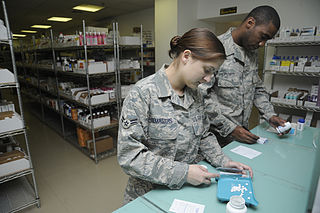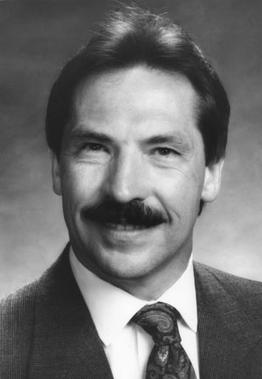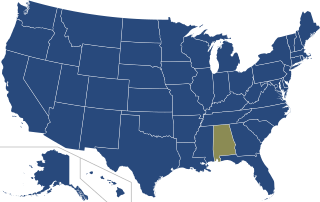Professional certification, trade certification, or professional designation, often called simply certification or qualification, is a designation earned by a person to assure qualification to perform a job or task. Not all certifications that use post-nominal letters are an acknowledgement of educational achievement, or an agency appointed to safeguard the public interest.
A psychiatrist is a physician who specializes in psychiatry. Psychiatrists are physicians and evaluate patients to determine whether their symptoms are the result of a physical illness, a combination of physical and mental ailments or strictly mental issues. Sometimes a psychiatrist works within a multi-disciplinary team, which may comprise clinical psychologists, social workers, occupational therapists, and nursing staff. Psychiatrists have broad training in a biopsychosocial approach to the assessment and management of mental illness.

A pharmacist is a healthcare professional who specializes in the preparation, dispensing, and management of medications and who provides pharmaceutical advice and guidance. Pharmacists often serve as primary care providers in the community, and may offer other services such as health screenings and immunizations.

Pharmacy is the science and practice of discovering, producing, preparing, dispensing, reviewing and monitoring medications, aiming to ensure the safe, effective, and affordable use of medicines. It is a miscellaneous science as it links health sciences with pharmaceutical sciences and natural sciences. The professional practice is becoming more clinically oriented as most of the drugs are now manufactured by pharmaceutical industries. Based on the setting, pharmacy practice is either classified as community or institutional pharmacy. Providing direct patient care in the community of institutional pharmacies is considered clinical pharmacy.

A pharmacy technician performs pharmacy-related functions. Training, certification, licensing, and actual practice of pharmacy technicians varies not only worldwide but in some countries regionally as well as by employer.

Family medicine is a medical specialty within primary care that provides continuing and comprehensive health care for the individual and family across all ages, genders, diseases, and parts of the body. The specialist, who is usually a primary care physician, is named a family physician. It is often referred to as general practice and a practitioner as a general practitioner. Historically, their role was once performed by any doctor with qualifications from a medical school and who works in the community. However, since the 1950s, family medicine / general practice has become a specialty in its own right, with specific training requirements tailored to each country. The names of the specialty emphasize its holistic nature and/or its roots in the family. It is based on knowledge of the patient in the context of the family and the community, focusing on disease prevention and health promotion. According to the World Organization of Family Doctors (WONCA), the aim of family medicine is "promoting personal, comprehensive and continuing care for the individual in the context of the family and the community". The issues of values underlying this practice are usually known as primary care ethics.
A consultant pharmacist is a pharmacist who works as a consultant providing expert advice on clinical pharmacy, academic pharmacy or practice, public health pharmacy, industrial pharmacy, community pharmacy or practice, pharmaceutical analysis etc., regarding the safe use and production of medications or on the provision of pharmaceutical services to medical institutions, hospitals, universities, research institutions, medical practices and individual patients.
The American Society of Consultant Pharmacists (ASCP) is an international professional association that provides education, advocacy, and resources to advance the practice of senior care pharmacy, and that represents the interests of consultant pharmacists who work with elderly patients.

The American Pharmacists Association, founded in 1852, is the first-established professional society of pharmacists in the United States. The association consists of more than 62,000 practicing pharmacists, pharmaceutical scientists, student pharmacists, pharmacy technicians, and others interested in the profession. Nearly all U.S. pharmacy specialty organizations were originally a section or part of this association.

The Appalachian College of Pharmacy (ACP), formerly known as the University of Appalachia, College of Pharmacy, is a private doctoral pharmacy school located in Oakwood, Virginia. The school, established in 2003, is Virginia's only three-year accelerated Doctor of Pharmacy program. ACP's mission is to improve the health outcomes of rural and underserved communities, particularly those in Central Appalachia, through education, service, and scholarship.

R. Tim Webster, SCD was a founder and long-time executive director of the American Society of Consultant Pharmacists (ASCP). He was born October 9, 1946, in Martins Ferry, Ohio and lived in St. Clairsville, Ohio until he graduated from high school. He received his degree in pharmacy from Ohio State University (OSU) in 1969 and then dedicated his entire career to promoting quality pharmaceutical care to the elderly. Prior to his 27-year tenure as executive director of the ASCP, he was involved in regulatory affairs relating to long-term care in both the public and private sector. He died of cancer on July 6, 2003.

Clinical pharmacy is the branch of pharmacy in which clinical pharmacists provide direct patient care that optimizes the use of medication and promotes health, wellness, and disease prevention. Clinical pharmacists care for patients in all health care settings but the clinical pharmacy movement initially began inside hospitals and clinics. Clinical pharmacists often work in collaboration with physicians, physician assistants, nurse practitioners, and other healthcare professionals. Clinical pharmacists can enter into a formal collaborative practice agreement with another healthcare provider, generally one or more physicians, that allows pharmacists to prescribe medications and order laboratory tests.
Pharmacy residency is education a pharmacist can pursue beyond the degree required for licensing as a pharmacist. A pharmacy residency program allows for the implementation of skill set and knowledge acquired in pharmacy school through interaction with the public either in a hospital setting or community practice. The program is done over a span of about 2yrs after graduation from pharmacy school and licensure as a pharmacist. Pharmacy residency helps improve the resume of a pharmacist so as to increase chances of obtaining employment outside community practice. A 2022 review suggested that there is sufficient evidence that residency develops key competencies for junior pharmacists.
Board certification is the process by which a physician or other professional demonstrates a mastery of advanced knowledge and skills through written, oral, practical, or simulator-based testing.
The basic requirement for pharmacists to be considered for registration is often an undergraduate or postgraduate pharmacy degree from a recognized university. In many countries, this involves a four- or five-year course to attain a bachelor of pharmacy or master of pharmacy degree.
Psychiatric pharmacy, also known as mental health pharmacy, is the area of clinical pharmacy specializing in the treatment of people with psychiatric illnesses through the use of psychotropic medications. It is a branch of neuropsychiatric pharmacy, which includes neurologic pharmacy. Areas where psychiatric pharmacists are found most abundantly are in chemical dependency, developmental disabilities, long-term care facilities, adherence clinics, mental health clinics, and within the prison system. However, psychiatry and neurology are not the only areas where psychiatric pharmacists require comprehensive knowledge. They must also be proficient in clinical problem solving, interprofessionalism, and communication with understanding and empathy for the patient population they serve, as they are a sensitive group.
The Board of Pharmacy Specialties (BPS) was established in 1976 and is an independent division of the American Pharmacists Association that grants recognition within the United States to appropriate pharmacy practice specialities and establishes standards for certification of pharmacists in 14 specialities. The specialty examinations are accredited by National Commission for Certifying Agencies (NCCA), the accreditation body of Institute for Credentialing Excellence (ICE).

A collaborative practice agreement (CPA) is a legal document in the United States that establishes a legal relationship between clinical pharmacists and collaborating physicians that allows for pharmacists to participate in collaborative drug therapy management (CDTM).
The pharmacist-to-pharmacy technician ratio is a legal regulation that establishes the maximum number of pharmacy technicians that may be supervised by a licensed pharmacist at one given time. For example, a pharmacist-to-pharmacy technician ratio of 1:3 would mean that three people are allowed to be working as pharmacy technicians at one time for every one pharmacist present.








